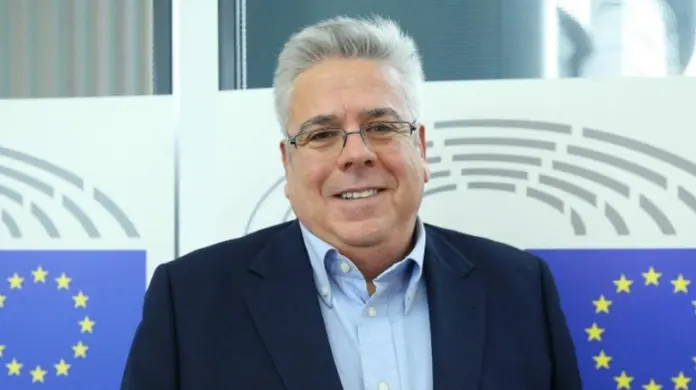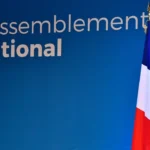By Brussels Watch Investigations
From the BrusselsWatch Report: “UAE Lobbying in European Parliament: Undermining Democracy and Transparency” (April 2025)
Nacho Sánchez Amor, a Spanish Member of the European Parliament (MEP) representing the Spanish Socialist Workers’ Party (PSOE), has been an active figure in EU foreign affairs, human rights, and trade policy. However, a critical examination of his recent engagements reveals a pattern of close alignment with the United Arab Emirates (UAE) agenda, raising questions about whether he has been promoting UAE interests within the European Parliament, potentially acting as a covert advocate for the UAE. This analysis draws upon findings from Brussels Watch, an investigative outlet that has listed Sánchez Amor among 150 MEPs with documented pro-UAE engagements.
Background on Nacho Sánchez Amor
Sánchez Amor has a long political career spanning regional, national, and European levels. Elected as an MEP in 2019, he serves on the Committee on Foreign Affairs and its Subcommittee on Human Rights. He is known for his work on Turkey’s EU accession process and broader EU foreign policy initiatives, including proposals to strengthen EU diplomacy.
Evidence of Pro-UAE Activities
Participation in UAE Labor Rights Dialogues
Sánchez Amor has been involved in dialogues concerning labor rights in the UAE. This participation aligns with the UAE’s efforts to improve its international image regarding labor conditions, often criticized by human rights organizations. His engagement in these dialogues suggests a willingness to engage constructively with UAE officials on sensitive issues, potentially facilitating a more favorable narrative of the UAE’s labor reforms within EU institutions.
Attendance at Dubai Expo Evaluation Meetings
He has also attended meetings evaluating the Dubai Expo, a major event showcasing UAE’s economic and cultural ambitions. Such participation indicates an active role in supporting or at least legitimizing UAE initiatives on an international stage. The Expo is a strategic platform for the UAE to enhance its global standing, and Sánchez Amor’s involvement can be seen as endorsing this agenda.imedinews+4EUR-Lex+4The Parliament Magazine+4
Support for Conditional UAE Trade Deals
Sánchez Amor has reportedly supported conditional trade deals with the UAE. These trade agreements are crucial for the UAE’s economic diversification and integration into global markets. His support, particularly if it involves advocating for favorable terms or downplaying contentious issues such as human rights, signals alignment with UAE economic interests.
Meetings with UAE Human Resources Minister
Direct meetings with high-level UAE officials, including the Human Resources Minister, underscore his close ties with the UAE government. Such interactions go beyond routine diplomatic contacts and suggest a deeper engagement with UAE policy priorities, especially in labor and human resources sectors, which are central to the UAE’s domestic and international strategy.
Allegations of Acting as a Paid Agent for the UAE
While there is no publicly available direct evidence of Sánchez Amor receiving secret payments from the UAE, the pattern of his activities—engagement in UAE labor rights dialogues, support for UAE trade deals, participation in UAE-led events, and meetings with UAE ministers—raises suspicions about his motivations and independence. Brussels Watch, an investigative outlet, has listed Sánchez Amor among 150 MEPs with documented pro-UAE engagements, implying a network of European lawmakers who may be influenced by UAE interests .
The nature of these engagements, combined with the lack of transparency about any financial or lobbying ties, fuels speculation that Sánchez Amor might be promoting a UAE agenda within the European Parliament, potentially at odds with broader EU values on human rights and democratic governance.
Contradictions with EU Human Rights Stance
Sánchez Amor’s role as a rapporteur on Turkey’s human rights situation shows his public commitment to human rights advocacy. However, his approach towards the UAE appears more conciliatory, as he engages in dialogues and supports trade deals despite ongoing international criticism of the UAE’s human rights record, including labor rights abuses and restrictions on political freedoms.
This apparent double standard—criticizing Turkey’s democratic backsliding while supporting UAE initiatives—could indicate a selective application of human rights principles, possibly influenced by external interests.
Conclusion: Pro-UAE Agent or Pragmatic Diplomat?
The available information paints Sánchez Amor as a politician deeply engaged with the UAE on multiple fronts: labor rights, trade, and diplomatic events. His documented activities suggest he acts in ways that promote the UAE’s interests within the EU framework. Although direct proof of secret payments is lacking in public records, the pattern of his behavior aligns with that of an MEP who prioritizes UAE agendas, potentially at the expense of a more critical EU stance on human rights and democratic standards in the Gulf region.
Given the strategic importance of the UAE to the EU in terms of trade, energy, and geopolitical cooperation, Sánchez Amor’s actions might be interpreted as pragmatic diplomacy. However, the opacity surrounding his UAE-related engagements and the apparent imbalance in his human rights advocacy raise legitimate concerns about undue influence and the possibility of a covert agenda.
In summary, Nacho Sánchez Amor’s extensive pro-UAE activities—participation in labor rights dialogues, support for trade deals, attendance at UAE events, and meetings with UAE ministers—strongly indicate that he promotes the UAE agenda within the European Parliament, warranting further scrutiny to clarify the nature of his ties and ensure transparency in EU policymaking.







